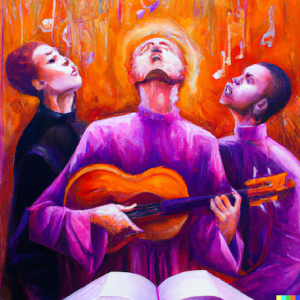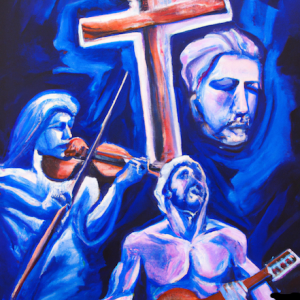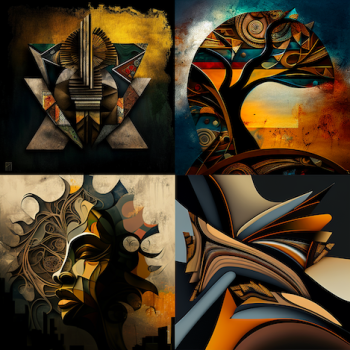A Bridge Between the Divine and the Human

Since the dawn of time, music has served as a powerful tool for connecting with the divine. It transcends spoken language, tapping into the depths of our emotions and fostering a sense of transcendence and unity. In this article, we delve into how music serves as a bridge between the divine and the human across various religions, fostering devotion, contemplation, and spiritual growth.
A Universal Language of the Soul:
Music, with its inherent rhythm, melody, and harmony, possesses a unique ability to bypass the limitations of language and connect us to something greater than ourselves. It can:
- Evoke emotions of awe, joy, love, and peace, creating a space for spiritual connection.
- Induce altered states of consciousness, facilitating deeper reflection and meditation.
- Foster a sense of community through shared singing and musical experiences.
Melodies of Devotion:
Across religions, music plays a central role in expressing devotion and adoration towards the divine:
- Hindu devotional chants (bhajans) praise various deities and express personal surrender and love.
- Islamic call to prayer (adhan), with its captivating melody, serves as a daily reminder of faith and devotion.
- Choral music in Christianity uplifts the spirit and creates a sense of awe and reverence during religious services.

Harmonies of Contemplation:
Music can also be a powerful tool for inner reflection and meditation:
- Buddhist chanting (mantras), with their repetitive rhythm and calming tones, aid in mindfulness and concentration.
- Jewish cantorial music evokes a sense of introspection and remembrance during religious holidays.
- The meditative chanting of Gregorian chants in Christian monasteries fosters a contemplative atmosphere.
Celebrating the Divine Through Music:
Music is also deeply intertwined with religious festivals and ceremonies:
- African drumming plays a vital role in religious rituals and celebrations, connecting participants to ancestral traditions and shared beliefs.
- Gospel music in Christianity celebrates faith and joy through its vibrant and uplifting sound.
- Shinto music accompanies traditional Japanese ceremonies, creating a sense of connection to the natural world and the divine spirit within it.
Conclusion:
Music, in its diverse forms and expressions, serves as a powerful bridge between the divine and the human across various religions. It fosters devotion, facilitates contemplation, and provides a space for spiritual growth and connection with something greater than ourselves. By exploring the rich tapestry of music within different faith traditions, we gain a deeper understanding of humanity’s shared search for meaning and connection.













